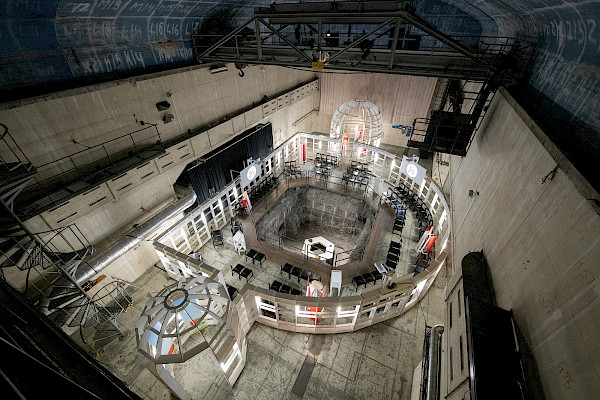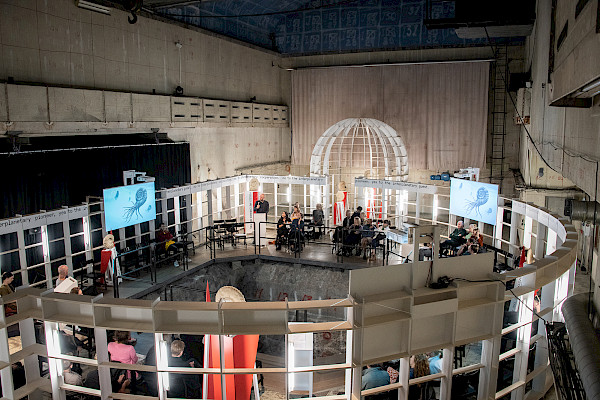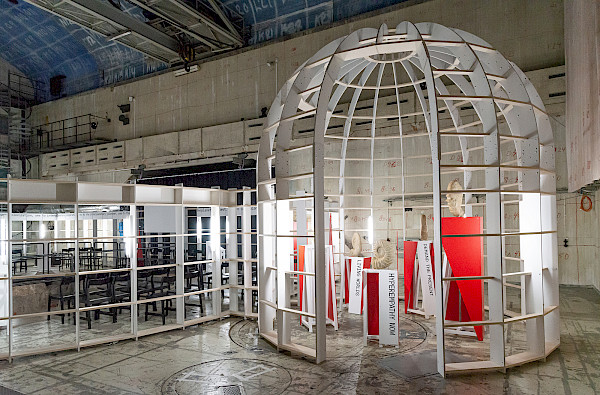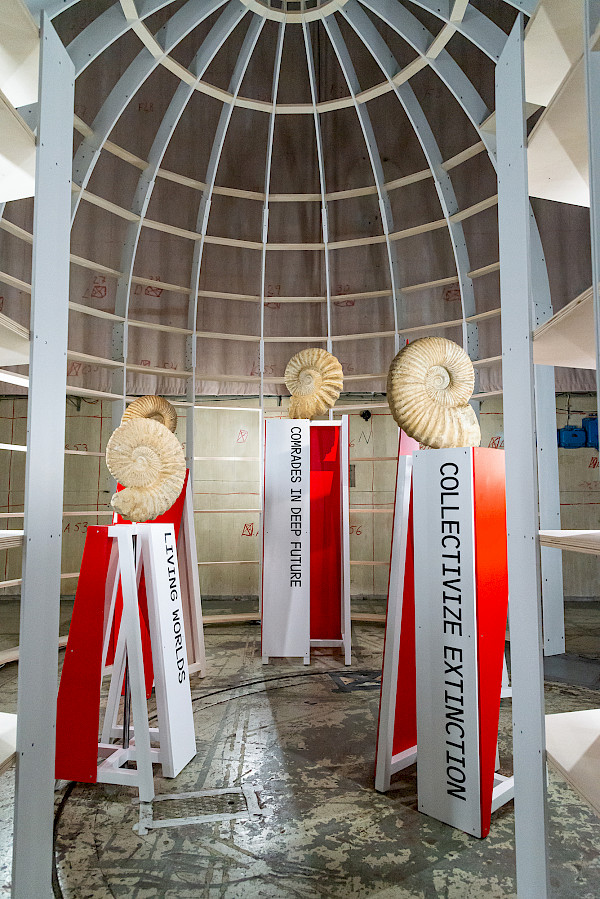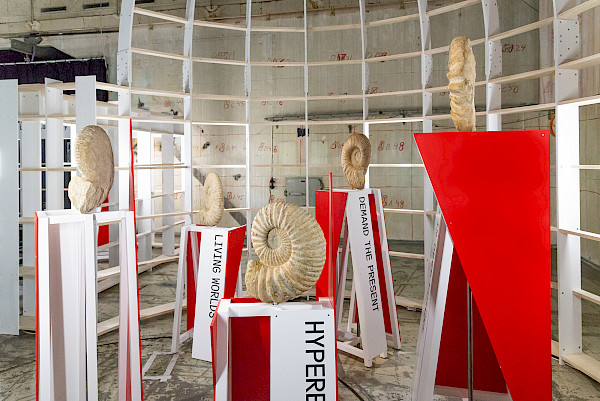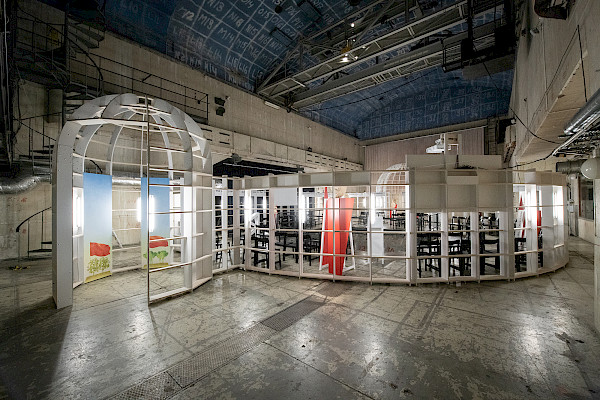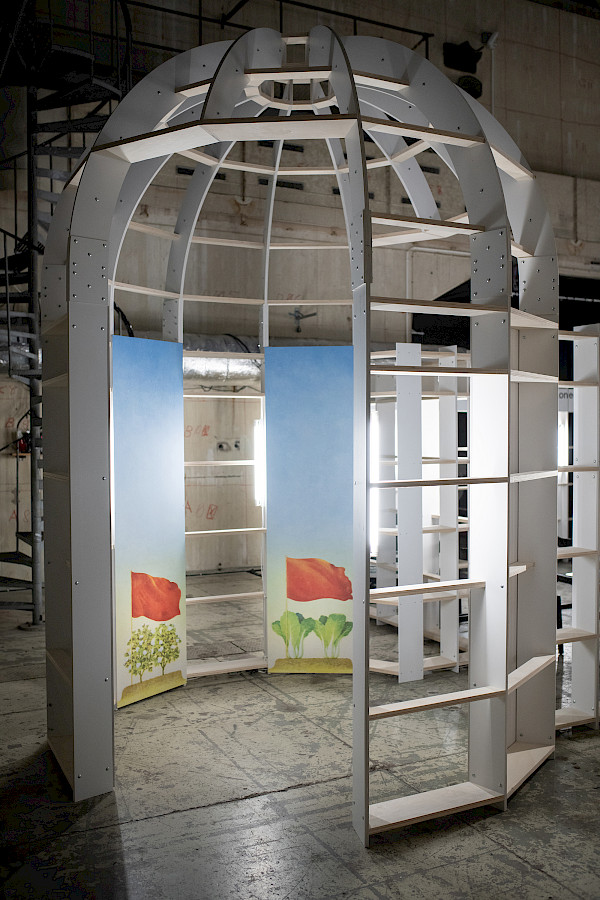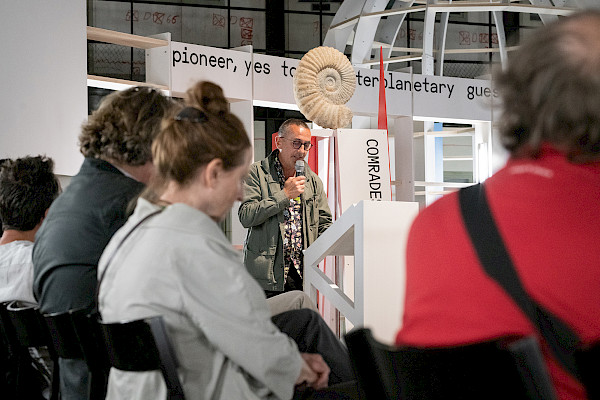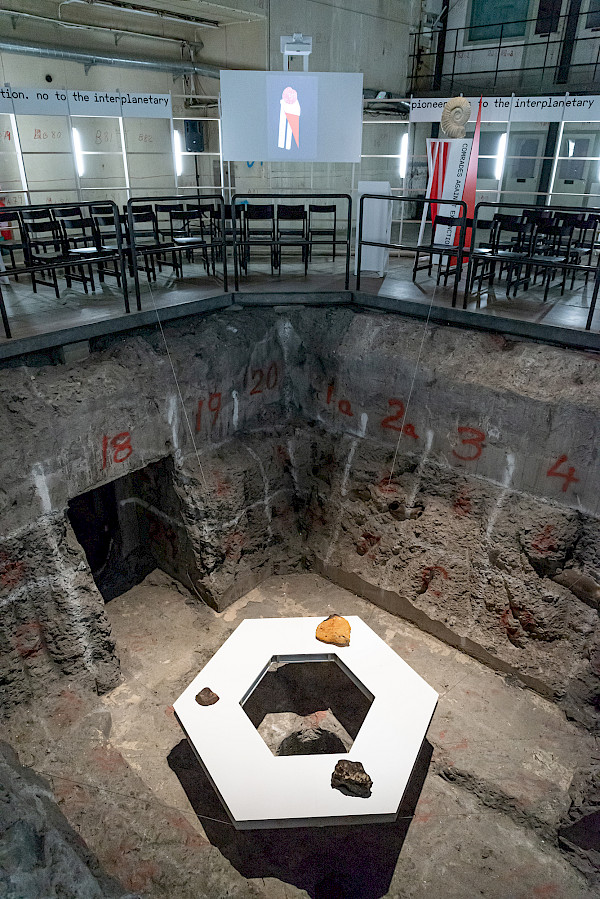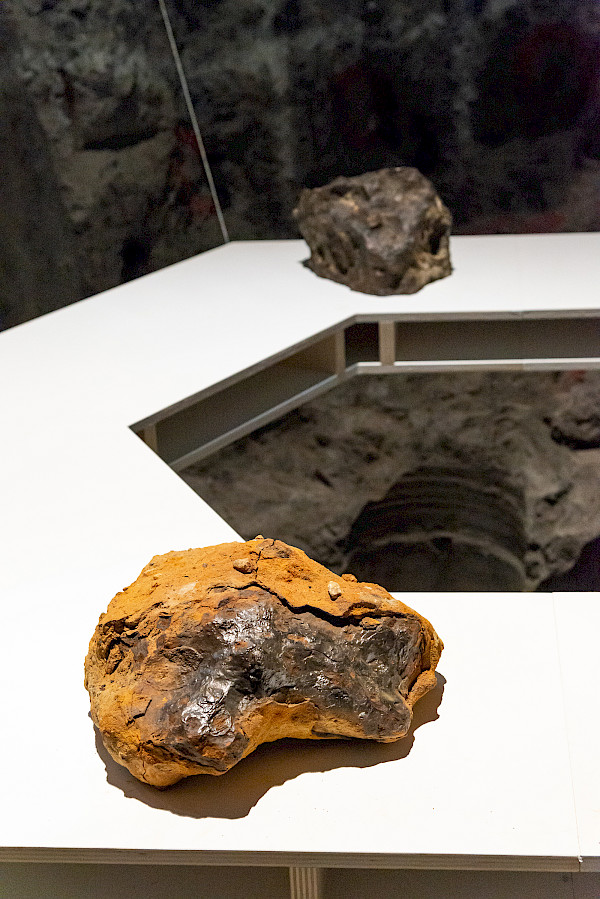Interplanetary Species Society
2019
August 13-25, 2019
Reaktorhallen, Stockholm, Sweden
Interplanetary Species Society (ISS) consists of a large-scale installation in the form of an alternative biosphere in the Reaktorhallen, the former underground nuclear facility of Stockholm. The biosphere contains assemblies of humans, ammonites, meteorites and proletarian plantae, exploring new forms of comradeship between human, non-human, and more-than-human agents.
Entering the age in which humans will become an interplanetary species, ISS challenged the neocolonial and extractivist logics at play in the corporate terraforming endeavors of Space X or Trump’s export of ultranationalist in the form of a new “Space Army.” Instead, the alternative biosphere of the ISS calls to reject the notion of space colonization in favor of space cooperation and proposes human species to consider themselves as guests instead of pioneers. Situated twenty-five meters underground, the ISS literally turns into our planet to reflect on what our future as an interplanetary species could and should be. As such, ISS proposes the biosphere as a space to train new forms of intra-planetary and interplanetary alliances.
The founding assembly of the ISS took place on August 24, 2019, and explored the subjects of interplanetary infrastructure, languages and politics from the perspectives of art, political theory and science, with contributions by James Bridle (artist and writer), Kristine Dannenberg (Swedish National Space Agency), iLiana Fokianaki (curator, State of Concept Athens), Vincent W.J. van Gerven Oei (philologist), Janna Holmstedt (artist), Klaas Kuitenbrouwer (researcher digital culture), Charl Landvreugd (artist and researcher), Aurélie Nyirabikali Lierman (radio artist, vocalist and composer), Sven Lütticken (art historian), Felicity Scott (architecture theorist), and Anton Vidokle (artist). Further events were organized by the The Posthumanities Hub Stockholm and the Public Art Agency Sweden. Multiple screenings of Anton Vidokle’s Citizens of the Cosmos (2019) took place throughout the period of the installation.
-
Project by:
Jonas Staal
-
Project team:
Jonas Staal (artist), Edi Muka (curator), Paul Kuipers (architect), Remco van Bladel (graphic designer), Isak Mozard (Producer Public Art Agency Sweden), Younes Bouadi and Evelien Scheltinga (production and coordination Studio Jonas Staal), Landstra ontwerp en uitvoering (construction); Ricard Estay (photography)
-
Commissioned by:
Public Art Agency Sweden (SE)
-
Supported by:
Mondriaan Foundation, Amsterdam (NL)










